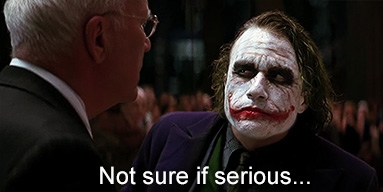7hm
Scholar
- Joined
- Oct 29, 2010
- Messages
- 644
Fair comment.You keep beating that same old broken drum
S&S is nothing like Apple, Blizzard, or wargames. There is plenty of competition for the game,
What is the direct competition? Yes, there is generic competition in the sense of CRPGs. There is very little specific competition for that type of CRPG. You can argue that the target market is broader than just fans of blobbers. I would argue that if he were to look at who actually bought the game, he would find that it's almost entirely people who are primarily blobber fans.
Wargame makers have built up a following, which S&S cannot compete with yet. Also see the post by commie on why the wargamer market is different. Ignoring evidence contrary to your opinion is known as stacking the deck, by the way.
You have to start somewhere. Wargames didn't come onto the market with a following and they didn't come into the market at a low price and then increase the price over time. They came in at a high price and they never dropped it. I am arguing that some games should do the same.
Derp. Buzzwords like graphics and ui? Or do you mean actual words used in marketing like target market? It's not a truism that graphics or general presentation need to be professional to sell your product (see: Dwarf Fortress, which while not using a traditional sales model, is undeniably marketable despite the deficiencies). Your market will dictate that. It's better, but it's less important for some markets than it is for others.Dropping buzzwords and repeating truisms (sounds, ui, graphics need to be good? Whodathunkit? Professional looking product? Well I never!)
There is a simple fact that completely disproves your opinion on indie rpgs pricing, and that is sales figures. Perhaps Sovereign should be priced at $40 so we can all observe how easy it is to dominate the market by pricing yourself at the very top of the top tier.
Uh, no, there isn't. The point is that indies aren't pricing this way, and that there are no sales figures to indicate how they should price. I'm willing to bet a lot of money on the fact that most indie game developers do little to no market analysis in regards to pricing. A simple survey when you purchase Underworld Gold asking how the customer found the product, why they are purchasing it, and some basic demographic information (age and country of origin would be the two absolute must asks) would at least be SOMETHING, but as it is Charles (and pretty much all indie devs) knows little to nothing about his customers. What was the price based on? Not facts, certainly. It was based on the competition, but in a creative field you can't price for competition, you have to price for your market and your product.
The simple fact is that indie devs know little about either marketing or their customer base, and price their games accordingly. There is a real lack of hard data for these guys to work with.
edit: I'm leaving the above comment as written, but I would alter it to say that indie devs may actually know a lot about marketing and may be fantastic at using that knowledge in other fields. What they don't appear to be doing is applying that knowledge to their game sales / marketing.
Sales figures showing that games that are 20$ sell more when they're on sale for 10$ don't demonstrate that the game should be priced at 10$ btw.
(I'm fully willing to admit that I'm making some HUGE assumptions about the market. I don't see the harm in indie devs doing more work to determine whether or not these are good assumptions, and I think it's a real mistake just to assume that they're wrong and that the correct way to price has already been established. The downside to coming in at a high price is bad sales early on and a bad impression, but that can mostly be addressed down the road through price corrections or promotions. The downside to coming in at a low price is that you leave money on the table on every sale. One of these two outcomes is worse than the other, if your goal is profit.)
...
There are some other things to add actually. A really important distinction with indie pricing needs to be made between the hobbyists and the professionals. Hobbyists sometimes have revenue as their primary goal but often it's something else: notoriety, credibility, a vision they want to share with the world... Hobbyists don't need to price their games with profit as the goal and that certainly exerts downward price pressure on pros. While I think professionals (or people who are attempting to make indie games their day job) need to keep that in mind, they can't allow themselves to price as though their own goals are anything other than profit.
Anyway I realise I'm beating a dead horse. I find this whole discussion really interesting though. There is very little hard data out there in the public domain and as is usually the case individual firms aren't sharing their own market research. Have the humble bundle guys started to provide marketing services for indies yet? I thought that was one of the things they were going to start doing.









![Glory to Codexia! [2012] Codex 2012](/forums/smiles/campaign_tags/campaign_slushfund2012.png)
















